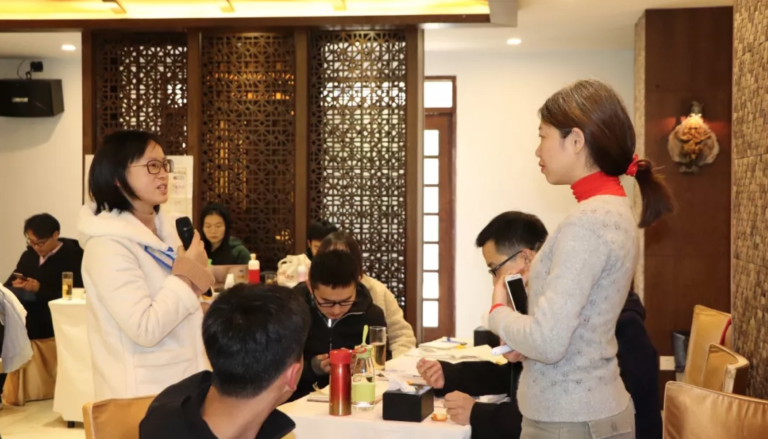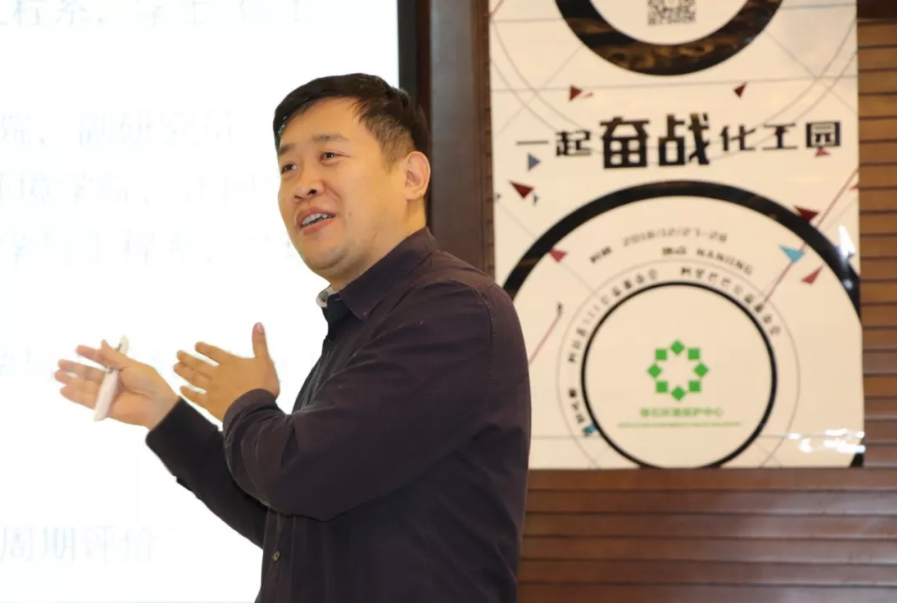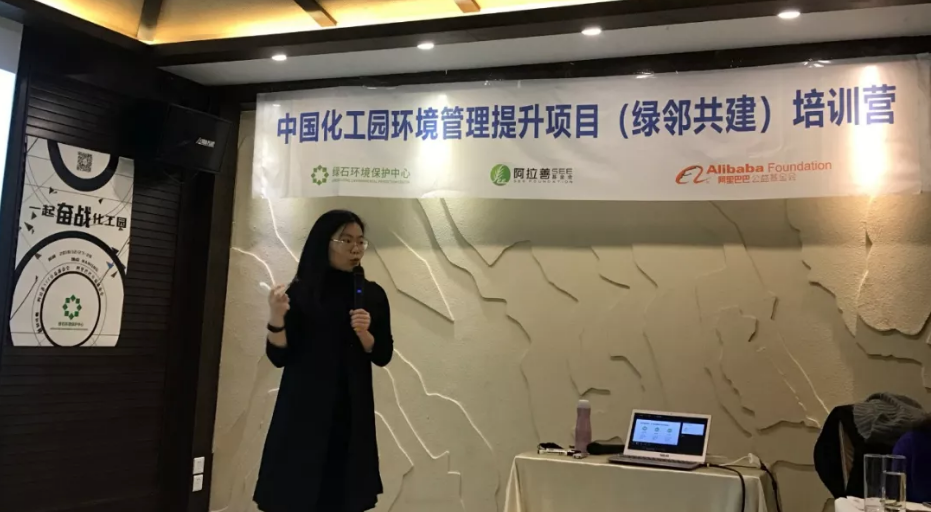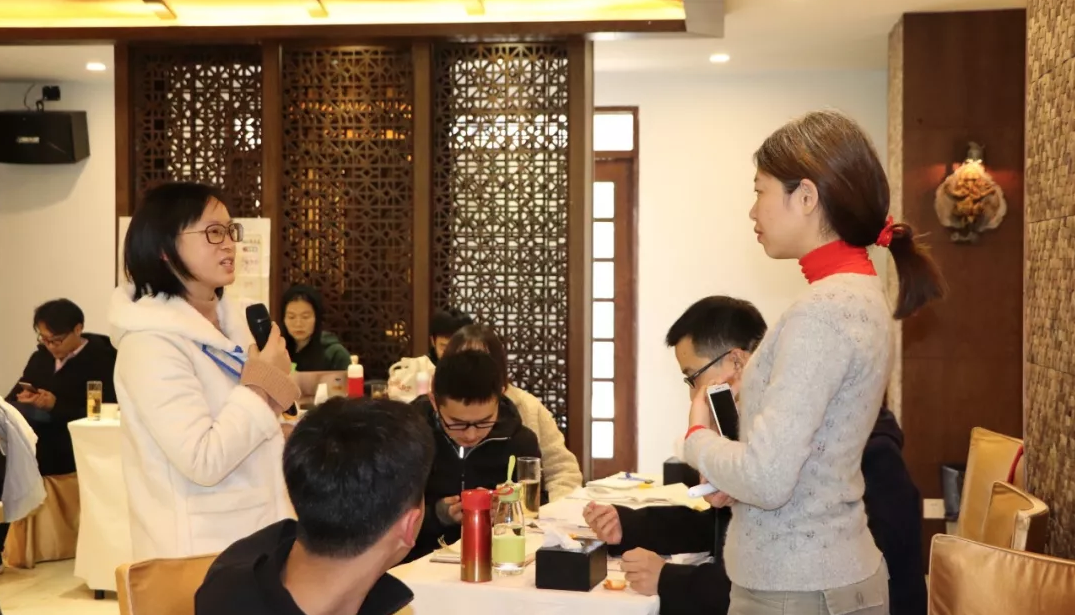
By Katherine Olson, Waterkeepers China Communication Associate
In alliance with various partners such as the Alibaba Foundation, SEE, and the Ford Eco Prize, Green Stone Environmental Protection Center (the parent organization to Lower Yangtze River Waterkeeper) officially launched the “Green Neighbors” program, a set of environmental management assessment standards for petrochemical industrial parks that were designed by and for grassroots-level individuals.
During the launch event held in Shanghai, the head of Green Stone brought up the inevitable question: “Chemical industries are faced with severe pollution issues and ever-stricter environmental regulation, leaving them with two choices: do we keep plowing forward, ignoring all of it? Or do we stop for a bit and think long and hard about how to fix this?”
Indeed, our lives are inseparably connected to the chemical industry, and for many, it is a source of income—but no one wants to deal with the environmental impacts of it. The only solution is effective environmental management that can minimize environmental risk while maximizing economic gain, and this trend has led to more and more industries leaving behind cities and moving to industrial parks
According to data from Sinopec, at of the end of 2017, China had 601 industrial parks focused primarily on chemical/petrochemical industries—and when it comes to improving the environmental performance of these highly concentrated industrial areas, one of the most important factors is the environmental management capacity of the industrial park committee. Only the industrial park committee can achieve the reasonable planning and design, and effective regulation and management, that is essential to successful anti-pollution measures.
For this reason, Green Stone researched and developed the “Green Neighbors” program, which aims to maximize the environmental management potential of industrial park committees. The Green Neighbors index primarily consists of three assessment standards: environmental management effectiveness, environmental information disclosure, and public participation. The index deducts points for environmental risks and damages and adds points for environmental management successes.
“Green Neighbors” uses the perspective of everyday citizens to audit the environmental management situation in chemical industrial parks while also achieving the public’s desire to participate in planning, management, and interaction with industries and promote environmental risk reduction. Through this program, the thoughts and opinions of citizens are taken into account, allowing industrial parks, residential areas, and local ecology to peacefully coexist.
In 2018, Green Stone collected data for the “Green Neighbors Index” through a variety of methods such as on-site investigations, information disclosure applications, and discussions with chemical industrial park environmental managers. As of August 2018, Green Stone had already assessed over 20 industrial parks in Jiangsu Province.
The Green Neighbors Index provides industrial parks with new ideas and methods for green development by helping to increase basic environmental management effectiveness, allowing society to participate in industrial environmental regulation activities, and using individualized management strategies.
Green Stone isn’t keeping this great program to itself—now that Green Neighbors is in a practical and applicable stage, they are sharing the program with other NGOs to improve environmental regulation of industrial parks all around China. On December 27-28, 2018, Green Stone held the first ever Chinese Chemical Industrial Park Environmental Management Program training session in Nanjing, with huge support from SEE and the Alibaba Charity Foundation toward the event.
The systematic training was a mixture of theory and practice and included an overview of the current conditions of industrial parks and changes that are taking place, potential paths towards green development, environmental management strategies, methods for pre-investigation and onsite investigation, quick and effective reporting of environmental issues, communication and advocacy, and more.
Throughout the 2-day training, the Green Stone team shared their 4 years of experiences and wisdom in the field of chemical industrial park environmental management assessment and organized practice opportunities for the NGO partners in attendance to help them obtain the skills and methods necessary for effective use of the Green Neighbors system.
Participants became much more familiar with chemical industrial parks and gained new methods of thought for how to solve and manage environmental issues. We look forward to seeing what all of these NGOs will do with their new knowledge and skills in the upcoming year.


